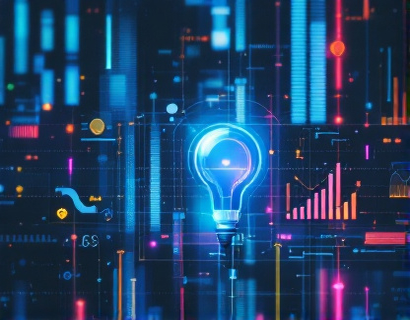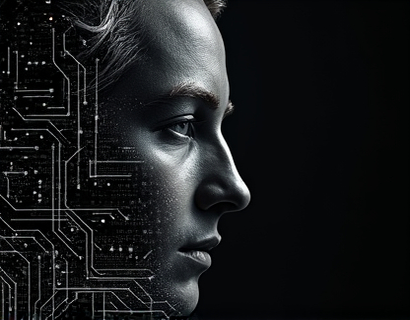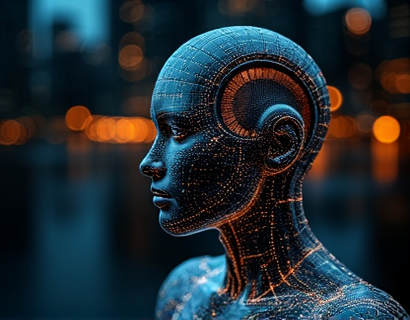Revolutionizing User Experiences in the Blockchain Era: The Power of Crypto and AI
The intersection of cryptocurrency and artificial intelligence (AI) is ushering in a new era of innovation, fundamentally transforming business operations and user experiences. This fusion of technologies is not just a trend but a paradigm shift that tech leaders must embrace to stay competitive. As we delve into this transformative landscape, it's essential to understand how these technologies are reshaping the digital world and what opportunities they present for businesses and users alike.
Understanding Cryptocurrency and AI
Cryptocurrency, a digital or virtual currency that uses cryptography for security, operates on a decentralized network known as blockchain. This technology ensures transparency, security, and immutability, making it an ideal foundation for various applications beyond just financial transactions. On the other hand, AI refers to the simulation of human intelligence processes by machines, particularly computer systems. These processes include learning (the acquisition of information and rules for using it), reasoning (using rules to reach approximate or definite conclusions), and self-correction.
The combination of cryptocurrency and AI creates a powerful synergy. AI can enhance the functionality and efficiency of blockchain networks, while blockchain can provide a secure and transparent environment for AI applications to operate. This synergy is revolutionizing industries ranging from finance and healthcare to supply chain management and beyond.
Enhancing Security and Transparency
One of the most significant benefits of integrating AI with cryptocurrency is the enhancement of security and transparency. AI algorithms can monitor blockchain networks in real-time, detecting and mitigating potential threats such as fraudulent transactions or network attacks. Machine learning models can analyze patterns and anomalies, providing a proactive approach to security that traditional methods cannot match.
Transparency is another area where this fusion excels. Blockchain's inherent transparency ensures that all transactions are recorded and verifiable. AI can further enhance this by providing tools for data analysis and visualization, making it easier for users to understand and trust the system. This level of transparency is crucial for building trust in decentralized applications and services.
Optimizing Smart Contracts
Smart contracts, self-executing contracts with the terms directly written into code, are a cornerstone of blockchain technology. AI can optimize these contracts by automating complex decision-making processes and ensuring they operate efficiently and effectively. AI algorithms can analyze vast amounts of data to identify potential issues or improvements in smart contract code, reducing the risk of errors and enhancing reliability.
Moreover, AI can help in the creation of more sophisticated smart contracts that adapt to changing conditions. For instance, AI can enable smart contracts to adjust parameters based on real-time data, making them more dynamic and responsive to market changes. This capability is particularly valuable in areas like decentralized finance (DeFi), where dynamic pricing and risk management are critical.
Personalized User Experiences
The integration of AI with cryptocurrency is also transforming user experiences by enabling personalized interactions. AI-driven analytics can process user data to understand preferences and behaviors, allowing for tailored recommendations and services. In the context of blockchain-based platforms, this means users can enjoy a more customized and intuitive experience, from financial services to content consumption.
For example, AI can analyze a user's transaction history and preferences to suggest relevant financial products or investment opportunities. This level of personalization not only enhances user satisfaction but also increases engagement and loyalty. In the realm of decentralized applications (dApps), AI can help create more user-friendly interfaces and seamless workflows, making blockchain technology more accessible to a broader audience.
Efficient Supply Chain Management
Supply chain management is another sector that stands to benefit greatly from the combination of cryptocurrency and AI. Blockchain provides a transparent and immutable ledger for tracking goods from production to delivery, while AI can optimize various stages of the supply chain. AI algorithms can predict demand, optimize inventory levels, and identify bottlenecks, ensuring a smoother and more efficient process.
Cryptocurrency can facilitate seamless and secure transactions at each step of the supply chain, reducing the need for intermediaries and lowering costs. Smart contracts can automate payments and ensure compliance with contractual obligations, further streamlining operations. This integration not only improves efficiency but also enhances traceability and accountability, which are crucial for building consumer trust.
Enhancing Financial Inclusion
The fusion of cryptocurrency and AI has the potential to significantly enhance financial inclusion. Traditional financial systems often exclude a large portion of the global population due to high costs and complex regulations. Blockchain and AI can democratize access to financial services by providing low-cost, secure, and accessible solutions.
AI-powered identity verification systems can help unbanked individuals prove their identity without the need for extensive documentation. Cryptocurrency, backed by blockchain, can offer a decentralized and transparent way to conduct financial transactions. Together, these technologies can provide financial services to underserved communities, fostering economic growth and stability.
Challenges and Considerations
While the potential benefits are substantial, there are also challenges and considerations that must be addressed. One of the primary concerns is regulatory compliance. The regulatory landscape for cryptocurrency and AI is still evolving, and businesses must navigate a complex web of laws and guidelines. Ensuring compliance while innovating is crucial to avoid legal pitfalls.
Another challenge is the technical complexity of integrating these technologies. Developing robust and secure systems that leverage both blockchain and AI requires specialized expertise. Businesses need to invest in skilled personnel or partner with technology providers to overcome these hurdles.
Additionally, there is the issue of scalability. While blockchain and AI offer powerful solutions, scaling these technologies to handle large volumes of transactions and data remains a challenge. Continuous research and development are necessary to address these issues and make these technologies more practical and widespread.
Future Outlook
The future of cryptocurrency and AI is bright, with numerous opportunities for innovation and growth. As technology advances, we can expect to see more sophisticated applications that further blur the lines between these fields. The development of interoperable blockchain networks, advancements in AI algorithms, and the rise of quantum computing are all factors that will shape the future of this fusion.
For tech leaders and businesses, embracing this revolution is not just an option but a necessity. By leveraging the power of cryptocurrency and AI, organizations can gain a competitive edge, enhance user experiences, and drive meaningful innovation. The key is to stay informed, adaptable, and forward-thinking, ready to capitalize on the transformative potential of these technologies.
In conclusion, the integration of cryptocurrency and AI is revolutionizing user experiences in the blockchain era. By enhancing security, optimizing smart contracts, personalizing user interactions, improving supply chain management, and promoting financial inclusion, this fusion is reshaping the digital landscape. Tech leaders who embrace these technologies will be well-positioned to thrive in the evolving technological landscape.










































